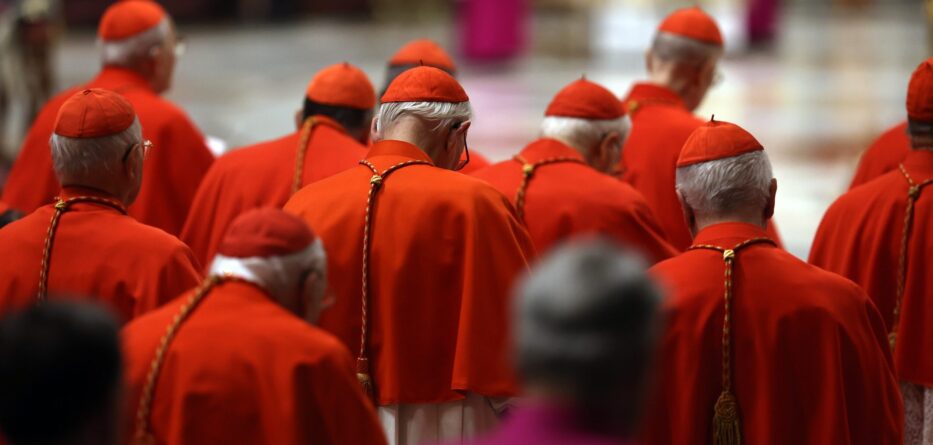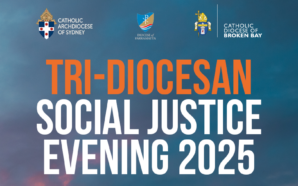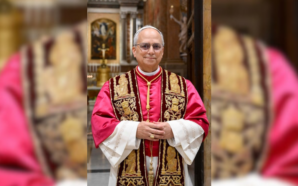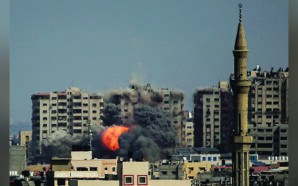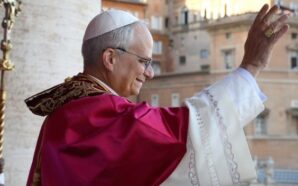Somewhere in Rome, far from St. Peter’s. The cardinal who agreed to meet us April 27 at midday tells us about his arrival in the Eternal City a week ago.
The first general congregations, the meetings to which the 252 cardinals of the world are summoned each day during the vacancy, immediately began after the pope’s death. These past days, they were devoted to organizing Francis’ funeral.
“The last two (April 24 and 25, Ed.), there were still some interventions on the church and the world,” our source corrected. Around us, a few umbrella pines. Bird sounds as a soft spring breeze is felt. The cardinal spoke of his vision of the last pontificate and what the church needs today.
He lifts his head.
“When I arrived, after Francis’ death, I had a few names in mind. I was saying to myself: those who have what it takes to be pope are only four or five. But by meeting others, I must say that I changed my mind.”
Like all the other cardinals we met, he requests the strictest anonymity before parting ways. The ban on speaking to the press was recently reminded to them in the old Synod Hall at the Vatican, where their discussions are held behind closed doors. Less than ten days before the conclave, whose date should soon be known, it is now almost certain: the future pope is in Rome.
Saturday morning, April 26, he was likely somewhere in that red square, visible from the sky in drone shots of Francis’ funeral. Five days after the death of the Argentine pope, the majority of the cardinals have indeed arrived. Their debates are overseen by the dean of the College, Cardinal Giovanni Battista Re, 91 years old.
Then, the 134 cardinals under 80 years old, as of today, will enter the Sistine Chapel to vote.
Less strategy
This time, both long and secret, the meeting thus began, as church rules provide, starting April 22, the day after Francis’ death.
The Vatican is still plunged in stupor and sadness when about 60 cardinals enter the old Synod Hall. After an hour and a half, the date and details of the pope’s funeral are announced.
In the following days, the number of cardinals present increases: 103 on Wednesday, 10 more on Thursday, and 149 on Friday. As planes from all corners of the world land at Rome Fiumicino airport, the horizons of discussions broaden.
To the cardinals of the first day, described by a cardinal present as “mainly heavyweights of the Curia” living in Rome and “old conclave regulars,” are now added men from the peripheries, whom the deceased pope loved so much.
“The atmosphere is changing,” noted a cardinal on the eve of Francis’ funeral. “It’s less closed in, the way of speaking is a little different, you can feel that we are less in strategy-mode,” added another.
For the vast majority of the cardinals arriving, the experience is new. Of the 134, 108 will be entering the Sistine Chapel for the first time.
“To be honest, I was hoping to escape the conclave,” explained a future elector, who shared the pressure felt at the announcement of the pope’s death.
“When I learned of his death, I was far from home, on a pastoral visit. I didn’t know if I should go to Rome that same day or the next. Then a summons came by email in the afternoon: we had an appointment at 9 a.m. the next morning. Without any further details,” added another.
One must then very quickly buy a plane ticket, pack a suitcase for a month in an hour, and leave everything behind. Among them, one man will not return home: the future pope.
Is mastery of Italian less and less a criterion to be elected pope?
Once in Rome, the shared concern is first to get to know each other.
In Paul VI Hall, where the cardinals are seated according to the three groups that structure the Sacred College (cardinal bishops, cardinal priests, and cardinal deacons), they first get to know their neighbors.
“They didn’t even give us a photo directory,” explained one of them, a little dejected, struggling to identify cardinals from all over the world.
Not only did Francis appoint a large part of the College, but he also abolished the tradition of “cardinalate sees,” these cities where the archbishop was automatically made cardinal.
The 2025 conclave will open without a cardinal from Paris or Milan, but with a bishop from Tonga, from Tehran…
Thursday, April 24. It is the time of the first speeches. About 30 each day, translated by interpreters into about ten languages.
If most informal exchanges are still conducted in Italian, the number of languages used in the room tends to increase. And if mastery of Dante’s language were becoming less and less a criterion for being elected bishop of Rome? In 2013, 28 cardinal electors were Italians. They are 17 today. A significant decrease accompanied a profound change in the characteristics of the College of Cardinals.
First, the broadening of nationalities among cardinals: 23 appointed by Pope Francis come from countries that had never had a “prince of the Church.”
For twelve years, Francis especially chose men of the field, pastors sometimes posted very far from Rome and heading very small churches, like in Mongolia (1,500 Catholics). “They represent Francis’ thinking, but they are not all Bergoglians” aligned with all his ideas, a member of the College judged.
During discussions, the cardinals speak freely, sometimes reading a few prepared notes. After organizing the funeral, their exchanges are now devoted to a “reflection on the Church and the world,” soberly commented the Holy See Press Office director this week.
“We first question the overall situation of the church. Then we identify hot spots and future directions,” specified a cardinal we met. Another said: “Countries at war, intercultural and interreligious dialogue, the place of synodality… You see trends emerging from how each one speaks about these subjects.”
The thorny case of Cardinal Becciu
The discussions center on Pope Francis’s legacy, the themes developed during his pontificate, and his reform of the church’s governance.
“Do we want to continue synodality or reattach it to the tradition of the church?” asked a cardinal. “Everyone starts by praising Pope Francis, but in terms that are more or less warm or conventional,” observes a witness.
Other critical electors feel the pope was too engaged on diplomatic ground and in the political debates of our time, and wish to refocus the future pontificate on producing major theological and doctrinal texts.
In these first days, an unexpected discussion also, according to a cardinal present, “poisoned the atmosphere”: that concerning Sardinian Cardinal Angelo Becciu, who was deprived of his right to vote in the conclave by Francis in 2020, after being accused of misappropriating Vatican funds.
The amounts involved are colossal: 454 million euros from the annual Peter’s Pence collection used to make a 184 million euro loan and risky investments.The cardinal, former substitute of the Secretariat of State, was sentenced four years later to a prison term after a long trial by the Vatican tribunal.
Having appealed the sentence, Cardinal Becciu believes that nothing can deprive him of participating in the conclave. The members of the College preferred to wait until after the funeral to decide, probably on Monday, on this thorny matter.
Do they speak directly of the future pope during these congregations? “There is no real campaign, it happens more subtly,” explained a witness. “What exists are conversations or small groups that can try to convince their colleagues that such and such a cardinal is the right one.”
“We do not do politics,” said a cardinal to anyone listening. “Do not forget that we have the Holy Spirit with us,” insisted another, dressed in his cassock edged with red on the way to the funeral Saturday morning.
“Let us remember that the election of a pope is not a political competition but a spiritual discernment,” the young Filipino Cardinal Pablo Virgilio David wrote this week to his friends.
“The conclave is a sacred moment, guided not by popularity or strategy, but by prayer, humility, and the community listening to God’s will by the pastors of the Church,” added this polyglot.
“There is not a progressive baptism and a conservative baptism,” stressed another cardinal, annoyed at the divisions. “Most journalists think of the church with political categories, but they are wrong. We have gone beyond these divisions: the Gospel is for everyone. It transcends all categories.”
Style, a criterion that became important under Bergoglio
Yet, those who are here do indeed have a role, assigned by the Catholic Church: to vote for the future pope, once gathered in the Sistine Chapel, probably around May 6.
Each here knows perfectly the story of Cardinal Bergoglio, the future Pope Francis, whose few words on the church’s role at the “existential peripheries” of the world captured minds during a general congregation.
A short, decisive speech for his election, a few days later. “I want a man who has political, intellectual, spiritual stature and a vision. And on top of all that, an extra soul,” enumerates a cardinal.
The names circulating among the cardinals are those found in the lists of papabili hurriedly published by the world press. “For a year now, we have been seeing lists,” explains a cardinal.
He mentions messages sent to him to pass them along, but also magazines painting portraits of future favorite popes. “Some names are serious, others not,” he says, without daring to name them.
“There we have men who have proven themselves, who are known worldwide. But we must also consider their style, which became an important criterion under Bergoglio, who emphasized proximity and communication.”
While waiting to move into Santa Marta, where occupants were asked to vacate their rooms by April 28, all cardinal electors have found refuge in Rome.
Some are already sleeping within the Vatican walls. Others prefer the pontifical colleges. A third group preferred to stay farther from the Vatican. One of them smiles.
“It’s so we can have meetings in peace.”
What happens now?
The Vatican entered April 26 into a mourning period that must last nine days, until Sunday, May 4.
Each morning since the pope’s death, the cardinals meet in general congregations.
These meetings bring together electing cardinals (under 80 years) and non-electing cardinals (over 80 years).
Each is free to speak for a few minutes.
They may also vote by secret ballot on the most important questions.
The conclave, whose date is decided by the cardinals, must begin between 15 -20 days after the pope’s death.
Reproduced with permission by La Croix International.




